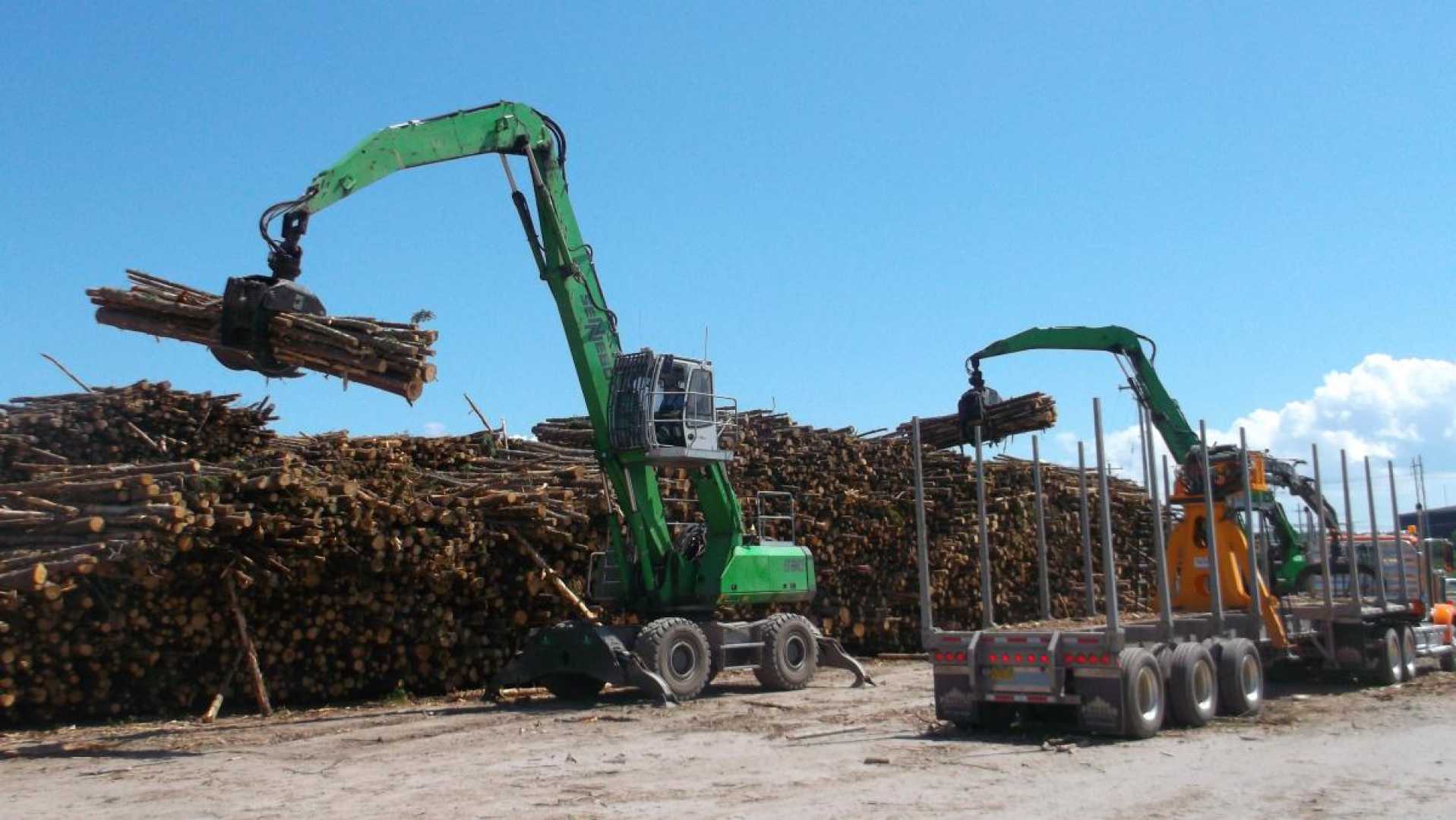Business
US-Canada Lumber Dispute Escalates Amid Trump Tariffs

ELMSDALE, Nova Scotia — The U.S. is set to escalate the longstanding softwood lumber dispute with Canada, significantly raising anti-dumping duties on imports of the critical building material. The U.S. Department of Commerce plans to increase the duties from 14.4% to 34.45% amid ongoing tensions between the two countries, as revealed in recent filings.
This move comes as the U.S. accuses the Canadian lumber industry of receiving government subsidies, which the U.S. claims gives Canadian companies an unfair advantage. British Columbia Premier David Eby has called the decision “unjustified,” stating that it will likely lead to increased housing costs for U.S. consumers, particularly for those who supported the President’s promises to lower prices.
A report from the National Association of Home Builders estimates that tariffs on lumber could add approximately $9,200 to the average cost of a new home, as Canada supplies over 80% of softwood lumber used in the U.S. The stakes are high, with around 30% of the softwood lumber consumed in the U.S. being imported.
U.S. homebuilders have echoed concerns, highlighting that rising costs may affect their ability to meet housing demands. “These unfair trade practices are designed by Canada to maintain an artificially inflated U.S. market share for Canadian products,” said Andrew Miller, chairman of the U.S. Lumber Coalition, in a statement.
In response, some members of the U.S. lumber industry believe that the new duties could help level the playing field domestically. Jason Brochu, co-president of Pleasant River Lumber in Maine, expressed optimism about the potential for growth, stating, “We could ramp up fairly quickly,” referring to increasing production if demand rises. Currently, Brochu’s mills are operating at 60% capacity.
The impact of these tariffs is already being felt across the industry. Analysts warn that escalated costs will not only affect lumber prices but could also hinder new construction projects as builders brace for higher expenses. Companies are also being urged to prepare for a potential economic slowdown as market reactions unfold.
Homebuilding advocates and officials are urging President Trump to reconsider the looming tariffs. Many point out that while the administration aims to reset trade agreements, unilateral moves like these could provoke retaliatory actions from Canada, leading to a tit-for-tat trade war.
As the U.S.-Canada trade relationship faces new challenges, the future of the softwood lumber market hangs in the balance, with both countries closely monitoring developments and potential shifts in strategy.












